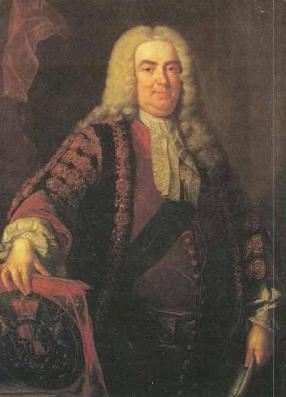- 最超值的Mac——Mac mini
初心么么哒
你知道最超值的Mac是什么吗?自2005年以来,Macmini一直是Apple台式机产品线中的主要产品。最初推出是为了让对Mac好奇的Mac进入Apple生态系统的一种简单方式,现在新的AppleSiliconMacmini可能是任何寻找新Mac的人的最有吸引力的购买。什么是AppleSiliconMacmini?M1Macmini是Apple最小的台式电脑,同时也是最快的台式电脑之一。最新型号由
- 详解mybatis的一二级缓存以及缓存失效原因
仰望天花板
缓存数据库mybatisjavamysql
数据库的大部分场景下是从磁盘读取,如果数据从内存进行读取,速度较比磁盘要快得多。但因为内存的容量有限,所以一般只会把使用和查询较多的数据缓存起来,以便快速反应,其他使用率不太多的继续存放在磁盘。mybatis分为一级缓存和二级缓存1.一级缓存一级缓存存放在SqlSqeeion上,默认开启1.1pojo@DatapublicclassRole{privateLongid;privateStringr
- 致良知之寄诸用明书
BonSun
众所周知,当今社会,父母和社会、学校对学生的期望往往是唯分数论,包括每个人对成功的理解也往往是功名利禄,忽视了最基本的学问。文中提到,花之千叶者无实,为其华美太发露耳。人只有沉下心来,韬光养晦,才能拥有真正的学问和本领。
- WORD批量转换器MultiDoc Converter
uolian
工作word
WORD批量转换器MultiDocConverterhttps://www.52pojie.cn/thread-1318745-1-1.html可批量将doc、docx等文件格式转成doc、docx、pdf、rtf、txt、html、epub等格式。安装包下载地址:https://wws.lanzouj.com/irvVbiz0pkd最终下载文件打包地址(未作成单文件,不确定是否可以直接使用):h
- MyBatis系统学习(一)——项目结构及其含义
OEC小胖胖
MyBatismybatis学习web后端
1.MyBatis简介MyBatis是一款优秀的持久层框架,它通过SQL映射的方式实现Java对数据库操作的映射,既保留了SQL语句的灵活性,也简化了代码的编写。在一个MyBatis项目中,核心部分主要有:配置文件(mybatis-config.xml)映射文件(Mapper.xml)实体类(Entity/POJO)接口类(Mapper接口)MyBatis会话工厂(SqlSessionFactor
- SpringBoot项目
俺叫啥好嘞
spring系列springspringboot
SpringBoot项目大概分为四层:(1)DAO层:包括XxxMapper.java(数据库访问接口类),XxxMapper.xml(数据库链接实现);(这个命名,有人喜欢用Dao命名,有人喜欢用Mapper,看个人习惯了吧)(2)Bean层:也叫model层,模型层,entity层,实体层,就是数据库表的映射实体类,存放POJO对象;(3)Service层:也叫服务层,业务层,包括XxxSer
- Python【math数学函数】
Alan_Lowe
#Pythonpython
Python【math数学函数】文章目录Python【math数学函数】数论与表示函数1.ceil()和floor()2.comb()3.copysign()4.fabs()5.factorial()6.gcd()7.lcm()幂函数与对数函数1.exp()和math.e和pow()2.log()和log2()和log10()3.sqrt(x)三角函数1.asin、acos()、atan()2.s
- 算法练习——迷宫问题(Java)bfs广搜
流萤点火
算法bfsjava
问题描述:小明置身于一个迷宫,请你帮小明找出从起点到终点的最短路程。小明只能向上下左右四个方向移动。输入输入包含多组测试数据。输入的第一行是一个整数T,表示有T组测试数据。每组输入的第一行是两个整数N和M(1que,intgx,intgy,intn,intm,char[][]arr){Qq=newQ();q.x=sx;q.y=sy;q.dept=0;que.add(q);//添加intfinish
- 数据结构OJ作业——队列
nnbs
数据结构数据结构poj队列
POJ3984:http://poj.org/problem?id=3984迷宫,输出最短路径,bfs#include#include#include#includeusingnamespacestd;intmaze[5][5];pairpath[5][5];queue>q;intdx[]={1,-1,0,0};intdy[]={0,0,1,-1};voidbfs(intx,inty){q.pus
- python 实现eulers totient欧拉方程算法
luthane
算法python开发语言
eulerstotient欧拉方程算法介绍欧拉函数(Euler’sTotientFunction),通常表示为(),是一个与正整数相关的函数,它表示小于或等于的正整数中与互质的数的数目。欧拉函数在数论和密码学中有广泛的应用。欧拉函数的性质1.**对于质数,有φ(p)=p−1∗∗φ(p)=p−1^{**}φ(p)=p−1∗∗。2.**如果是质数的次幂,即n=pkn=p^kn=pk,则φ(n)=pk−
- 数据结构与算法——7-6 列出连通集 (25分)
吃完有点累
数据结构与算法队列算法数据结构DFSBFS
7-6列出连通集(25分)给定一个有N个顶点和E条边的无向图,请用DFS和BFS分别列出其所有的连通集。假设顶点从0到N−1编号。进行搜索时,假设我们总是从编号最小的顶点出发,按编号递增的顺序访问邻接点。输入格式:输入第1行给出2个整数N(0#includetypedefintVertexType;typedefintEdgeType;#defineMAXVEX100#defineINFINITY
- 7-6 列出连通集 (25 分)
胡小涛
DFSBFS
7-6列出连通集(25分)给定一个有N个顶点和E条边的无向图,请用DFS和BFS分别列出其所有的连通集。假设顶点从0到N−1编号。进行搜索时,假设我们总是从编号最小的顶点出发,按编号递增的顺序访问邻接点。输入格式:输入第1行给出2个整数N(0#includeusingnamespacestd;typedefstructGNode{intn;inte;intAdjMatrix[11][11];};s
- 暑假训练总结
G_Meteor
不知不觉暑假就要这样结束了,这个假期主要在弄ACM了,但是由于家里原因并没有来学校参加集训,而是在家里跟着学知识点刷题做练习赛。编程作为计算机的基础以及入门知识,其重要性自然不用说,而且大一刚开始就是学算法,当时感觉编程挺感兴趣的,然后参加那个新生编程赛。刚开始接触到ACM也是在这次新生编程比赛上吧,当时听到学长对ACM的介绍后,感觉挺感兴趣的,再加上当时感觉编程也是挺有意思的,然后大一寒假就加入
- 7-7 六度空间
polebugzhuzhu
算法数据结构
输入样例:1091223344556677889910输出样例:1:70.00%2:80.00%3:90.00%4:100.00%5:100.00%6:100.00%7:100.00%8:90.00%9:80.00%10:70.00%分析:对每个点bfs前六层,为了使得d数组除了能表示距离,还能表示是否visted,所以d从1开始。用vectore[N];邻接表,对一个点的bfs=O(m),总时间
- 综述论文“A Survey of Zero-Shot Learning: Settings, Methods, and Applications”
硅谷秋水
机器学习机器学习神经网络深度学习
该零样本学习综述,发表于ACMTrans.Intell.Syst.Technol.10,2,Article13(January2019)摘要:大多数机器学习方法着重于对已经在训练中看到其类别的实例进行分类。实际上,许多应用程序需要对实例进行分类,而这些实例的类以前没有见过。零样本学习(Zero-ShotLearning)是一种强大而有前途的学习范例,其中训练实例涵盖的类别与想分类的类别是不相交的。
- 【Hot100】LeetCode—64. 最小路径和
山脚ice
#Hot100leetcode算法
目录1-思路题目识别动规五部曲2-实现⭐64.最小路径和——题解思路3-ACM实现原题链接:64.最小路径和1-思路题目识别识别1:给一个二维数组grid,每次只能向下或者向右移动一步识别2:求移动到右下角的最小路径和动规五部曲求的是路径的和,与不同路径的区别在于是否加上当前grid[i][j]的值2-实现⭐64.最小路径和——题解思路classSolution{publicintminPathS
- 【Hot100】LeetCode—763. 划分字母区间
山脚ice
#Hot100leetcode哈希算法
目录1-思路哈希表+双指针2-实现⭐763.划分字母区间——题解思路3-ACM实现原题链接:763.划分字母区间1-思路哈希表+双指针①找到元素最远的出现位置:哈希表②根据最远出现位置,判断区间的分界线:双指针实现1-定义一个哈希数组,判断最远出现的位置:int[]hash=newint[27]遍历字符串,记录最远出现位置2-分割点利用数组,收集结果intleft=0;intright=0;记录左
- 牛客周赛 Round 13 解题报告 | 珂学家 | 乘法原理场 + BFS上组合 + 众数贪心
Buoluochuixue
java
题解|#简单计算器##includeintmain(){doublea,b;charoperate;scanf(&迈瑞医疗一面等了面试官十几分钟,更气人在后面上来自我介绍完了就让开始做题。。。题不算很难,做完了之后,讲了下思路,后面根据简历提问。一分钟简单介绍下实习做的东西,我说到一半经纬恒润Java开发一面时长:35min1.聊项目2.gc3.线程共享私有4.类加载过程5.I/O相关6.Spri
- 五一的成果
王跃坤txdy
emm。。五一过了有意义的四天。原来简单的图论我也是可以搞出来的原来DFS放进图论真的会使难度变大原来BFS在没有出口的时候会以超指数的爆炸增长原来二叉树并不是很难原来哈希的速度远超数组原来动态规划滚动起来速度真的快原来栈是那么的有用,可惜来不及学了(遇到一个求化学方程式的算法题,我自己写了133行的字符串处理,原来用栈可以缩减3倍的代码)原来很多复杂的问题都可以拆解成很简单的问题比如我好像发现数
- c语言练习:POJ 1005 我想我需要一艘船屋(I Think I Need a Houseboat)
七月初七淮水竹亭~
C语言入门c语言
题目相关信息描述弗雷德·马珀(FredMapper)正在考虑在路易斯安那州购买一些土地来建造他的房子。在调查这片土地的过程中,他了解到,由于密西西比河造成的侵蚀,路易斯安那州实际上每年都在缩小50平方英里。由于弗雷德希望一辈子都住在这所房子里,他需要知道他的土地是否会因侵蚀而消失。在做了更多的研究之后,弗雷德了解到正在失去的土地形成了一个半圆形。这个半圆是以(0,0)为中心的圆的一部分,将圆平分的
- redis cluster之Gossip协议
tracy_668
什么是Gossip协议Gossipprotocol也叫EpidemicProtocol(流行病协议),实际上它还有很多别名,比如:“流言算法”、“疫情传播算法”等。这个协议的作用就像其名字表示的意思一样,非常容易理解,它的方式其实在我们日常生活中也很常见,比如电脑病毒的传播,森林大火,细胞扩散等等。Gossipprotocol最早是在1987年发表在ACM上的论文《EpidemicAlgorith
- 卡码网C++基础课 | 1. A+B问题I
TimeManager1
c++开发语言
之前一直有在学习c++,陆陆续续也跟着代码随想录刷了一些力扣,但是总感觉在自己的基本功不够扎实,尤其是在遇见ACM输入输出模式的时候,所以就想着跟着卡尔的基础课教程系统性地学习一遍,就在这里记录一下自己的小心得吧,也算是一种小小的打卡,希望自己能够坚持下去!加油!1.在该问题中,输入输出是靠内置库iostream实现的,里面有两个基础类型:istream和ostream,也就是输入输出流,在声明了
- 【笔试题汇总】华为春招笔试题题解 2024-3-20
PXM的算法星球
大厂面试题华为面试数据结构算法
这里是paoxiaomo,一个现役ACMer,之后将会持续更新算法笔记系列以及笔试题题解系列本文章面向想打ICPC/蓝桥杯/天梯赛等程序设计竞赛,以及各个大厂笔试的选手感谢大家的订阅➕和喜欢有什么想看的算法专题可以私信博主(本文题面由清隆学长收集)01.K小姐的魔法药水问题描述K小姐是一位魔法师,她最近在研究一种神奇的魔法药水。这种药水由一系列魔法材料制成,每种材料都有一个正整数的魔法值。K小姐按
- 【华为笔试题汇总】2024-05-22-华为春招笔试题-三语言题解(Python/Java/Cpp)
春秋招笔试突围
华为春秋招笔试题汇总最新互联网春秋招试题合集华为pythonjava算法
大家好这里是清隆学长,一枚热爱算法的程序员✨本系列打算持续跟新小米近期的春秋招笔试题汇总~ACM银牌|多次AK大厂笔试|编程一对一辅导感谢大家的订阅➕和喜欢清隆这边最近正在收集近一年互联网各厂的笔试题汇总,如果有需要的小伙伴可以关注后私信一下清隆领取,会在飞书进行同步的跟新。文章目录01.获取公共链表片段问题描述输入格式输出格式样例输入样例输出数据范围题解参考代码02.矿车运输成本问题描述输入格式
- bfs 迷宫打印所有路径 java,bfs 较为全面的迷宫路径问题,包括路径的打印,起点到任一点的最小步数. | 学步园...
微果酱
/*提供的输入数据:输入行数列数起点终点然后输入任意点的位置,可求起点到终点的距离,00表示结束.input:6500041101110111101001011111101111110413404400output:DDDDRRUUURUR1210410#include#include#includeusingnamespacestd;constintmm=301;intmap[mm][mm];i
- bfs 求解迷宫最短路径问题
蒟蒻彧彧
搜索
问题描述下图给出了一个迷宫的平面图,其中标记为1的为障碍,标记为0的为可以通行的地方。010000000100001001110000迷宫的入口为左上角,出口为右下角,在迷宫中,只能从一个位置走到这个它的上、下、左、右四个方向之一。对于上面的迷宫,从入口开始,可以按DRRURRDDDR的顺序通过迷宫,一共10步。其中D、U、L、R分别表示向下、向上、向左、向右走。对于下面这个更复杂的迷宫(30行5
- BFS迷宫最小路径问题
colorful_stars
C/C++算法c++算法leetcode数据结构
给定一个迷宫,0表示空地可以走,1表示墙壁不能穿越;在迷宫中可以向(上下左右)四个方向行进;找到从左上角到右下角的最短路径,并计算最短路径的长度。迷宫示例如下:算法步骤:1、从起始点出发,遍历四个方向,如果某个方向可以走,则先存储起来;2、按照四个方向中可以走网格进行尝试,如果该网格的四个方向仍可以走,则存储起来。3、直至到达网格的右下角,停止搜索。从以上分析可以看出,该步骤是按照一个广度优先搜索
- 四、使用MoveGroup C++接口——运动学(二)
阿白机器人
MoveIt2机器人运动规划c++
目录前言1.运动学插件(KinematicsPlugin)2.碰撞检测(CollisionChecking)3.碰撞对象(CollisionObjects)4.允许碰撞矩阵(AllowedCollisionMatrix,ACM)前言运动学是研究物体运动的几何属性而不涉及力或质量的科学。在机器人学中,运动学涉及到机器人的机械臂和关节如何运动。1.运动学插件(KinematicsPlugin)Move
- java mp3转m4a_轻松在你的Android App中转换音频文件,支持格式:WAV, AAC, MP3, M4A, WMA 和FLAC....
Kada Liao
javamp3转m4a
AndroidAudioConverterConvertaudiofilesinsideyourAndroidappeasily.ThisisawrapperofFFmpeg-Android-Javalib.Supportedformats:AACMP3M4AWMAWAVFLACLibsize:~9mbHowToUse1-AddthispermissionintoyourAndroidManife
- java开发中pojo、model和entity的区别及DTO与VO
leighy
javaspringbootmvc
一、pojo(PlainOrdinaryJavaObject无规则简单Java对象)简单java对象简单的javabean的对象,对应数据库某一张表,表的字段与pojo类的属性都要一一对应?(查阅发现没有具体对pojo描述,有的说是作为业务协作类不需要一一对应)但在实际开发中较少以pojo来对包命名。二、entity(实体类)数据表对应到实体类的映射则类属性与数据库表字段一一对应在实际开发中较多以
- web前段跨域nginx代理配置
刘正强
nginxcmsWeb
nginx代理配置可参考server部分
server {
listen 80;
server_name localhost;
- spring学习笔记
caoyong
spring
一、概述
a>、核心技术 : IOC与AOP
b>、开发为什么需要面向接口而不是实现
接口降低一个组件与整个系统的藕合程度,当该组件不满足系统需求时,可以很容易的将该组件从系统中替换掉,而不会对整个系统产生大的影响
c>、面向接口编口编程的难点在于如何对接口进行初始化,(使用工厂设计模式)
- Eclipse打开workspace提示工作空间不可用
0624chenhong
eclipse
做项目的时候,难免会用到整个团队的代码,或者上一任同事创建的workspace,
1.电脑切换账号后,Eclipse打开时,会提示Eclipse对应的目录锁定,无法访问,根据提示,找到对应目录,G:\eclipse\configuration\org.eclipse.osgi\.manager,其中文件.fileTableLock提示被锁定。
解决办法,删掉.fileTableLock文件,重
- Javascript 面向对面写法的必要性?
一炮送你回车库
JavaScript
现在Javascript面向对象的方式来写页面很流行,什么纯javascript的mvc框架都出来了:ember
这是javascript层的mvc框架哦,不是j2ee的mvc框架
我想说的是,javascript本来就不是一门面向对象的语言,用它写出来的面向对象的程序,本身就有些别扭,很多人提到js的面向对象首先提的是:复用性。那么我请问你写的js里有多少是可以复用的,用fu
- js array对象的迭代方法
换个号韩国红果果
array
1.forEach 该方法接受一个函数作为参数, 对数组中的每个元素
使用该函数 return 语句失效
function square(num) {
print(num, num * num);
}
var nums = [1,2,3,4,5,6,7,8,9,10];
nums.forEach(square);
2.every 该方法接受一个返回值为布尔类型
- 对Hibernate缓存机制的理解
归来朝歌
session一级缓存对象持久化
在hibernate中session一级缓存机制中,有这么一种情况:
问题描述:我需要new一个对象,对它的几个字段赋值,但是有一些属性并没有进行赋值,然后调用
session.save()方法,在提交事务后,会出现这样的情况:
1:在数据库中有默认属性的字段的值为空
2:既然是持久化对象,为什么在最后对象拿不到默认属性的值?
通过调试后解决方案如下:
对于问题一,如你在数据库里设置了
- WebService调用错误合集
darkranger
webservice
Java.Lang.NoClassDefFoundError: Org/Apache/Commons/Discovery/Tools/DiscoverSingleton
调用接口出错,
一个简单的WebService
import org.apache.axis.client.Call;import org.apache.axis.client.Service;
首先必不可
- JSP和Servlet的中文乱码处理
aijuans
Java Web
JSP和Servlet的中文乱码处理
前几天学习了JSP和Servlet中有关中文乱码的一些问题,写成了博客,今天进行更新一下。应该是可以解决日常的乱码问题了。现在作以下总结希望对需要的人有所帮助。我也是刚学,所以有不足之处希望谅解。
一、表单提交时出现乱码:
在进行表单提交的时候,经常提交一些中文,自然就避免不了出现中文乱码的情况,对于表单来说有两种提交方式:get和post提交方式。所以
- 面试经典六问
atongyeye
工作面试
题记:因为我不善沟通,所以在面试中经常碰壁,看了网上太多面试宝典,基本上不太靠谱。只好自己总结,并试着根据最近工作情况完成个人答案。以备不时之需。
以下是人事了解应聘者情况的最典型的六个问题:
1 简单自我介绍
关于这个问题,主要为了弄清两件事,一是了解应聘者的背景,二是应聘者将这些背景信息组织成合适语言的能力。
我的回答:(针对技术面试回答,如果是人事面试,可以就掌
- contentResolver.query()参数详解
百合不是茶
androidquery()详解
收藏csdn的博客,介绍的比较详细,新手值得一看 1.获取联系人姓名
一个简单的例子,这个函数获取设备上所有的联系人ID和联系人NAME。
[java]
view plain
copy
public void fetchAllContacts() {
- ora-00054:resource busy and acquire with nowait specified解决方法
bijian1013
oracle数据库killnowait
当某个数据库用户在数据库中插入、更新、删除一个表的数据,或者增加一个表的主键时或者表的索引时,常常会出现ora-00054:resource busy and acquire with nowait specified这样的错误。主要是因为有事务正在执行(或者事务已经被锁),所有导致执行不成功。
1.下面的语句
- web 开发乱码
征客丶
springWeb
以下前端都是 utf-8 字符集编码
一、后台接收
1.1、 get 请求乱码
get 请求中,请求参数在请求头中;
乱码解决方法:
a、通过在web 服务器中配置编码格式:tomcat 中,在 Connector 中添加URIEncoding="UTF-8";
1.2、post 请求乱码
post 请求中,请求参数分两部份,
1.2.1、url?参数,
- 【Spark十六】: Spark SQL第二部分数据源和注册表的几种方式
bit1129
spark
Spark SQL数据源和表的Schema
case class
apply schema
parquet
json
JSON数据源 准备源数据
{"name":"Jack", "age": 12, "addr":{"city":"beijing&
- JVM学习之:调优总结 -Xms -Xmx -Xmn -Xss
BlueSkator
-Xss-Xmn-Xms-Xmx
堆大小设置JVM 中最大堆大小有三方面限制:相关操作系统的数据模型(32-bt还是64-bit)限制;系统的可用虚拟内存限制;系统的可用物理内存限制。32位系统下,一般限制在1.5G~2G;64为操作系统对内存无限制。我在Windows Server 2003 系统,3.5G物理内存,JDK5.0下测试,最大可设置为1478m。典型设置:
java -Xmx355
- jqGrid 各种参数 详解(转帖)
BreakingBad
jqGrid
jqGrid 各种参数 详解 分类:
源代码分享
个人随笔请勿参考
解决开发问题 2012-05-09 20:29 84282人阅读
评论(22)
收藏
举报
jquery
服务器
parameters
function
ajax
string
- 读《研磨设计模式》-代码笔记-代理模式-Proxy
bylijinnan
java设计模式
声明: 本文只为方便我个人查阅和理解,详细的分析以及源代码请移步 原作者的博客http://chjavach.iteye.com/
import java.lang.reflect.InvocationHandler;
import java.lang.reflect.Method;
import java.lang.reflect.Proxy;
/*
* 下面
- 应用升级iOS8中遇到的一些问题
chenhbc
ios8升级iOS8
1、很奇怪的问题,登录界面,有一个判断,如果不存在某个值,则跳转到设置界面,ios8之前的系统都可以正常跳转,iOS8中代码已经执行到下一个界面了,但界面并没有跳转过去,而且这个值如果设置过的话,也是可以正常跳转过去的,这个问题纠结了两天多,之前的判断我是在
-(void)viewWillAppear:(BOOL)animated
中写的,最终的解决办法是把判断写在
-(void
- 工作流与自组织的关系?
comsci
设计模式工作
目前的工作流系统中的节点及其相互之间的连接是事先根据管理的实际需要而绘制好的,这种固定的模式在实际的运用中会受到很多限制,特别是节点之间的依存关系是固定的,节点的处理不考虑到流程整体的运行情况,细节和整体间的关系是脱节的,那么我们提出一个新的观点,一个流程是否可以通过节点的自组织运动来自动生成呢?这种流程有什么实际意义呢?
这里有篇论文,摘要是:“针对网格中的服务
- Oracle11.2新特性之INSERT提示IGNORE_ROW_ON_DUPKEY_INDEX
daizj
oracle
insert提示IGNORE_ROW_ON_DUPKEY_INDEX
转自:http://space.itpub.net/18922393/viewspace-752123
在 insert into tablea ...select * from tableb中,如果存在唯一约束,会导致整个insert操作失败。使用IGNORE_ROW_ON_DUPKEY_INDEX提示,会忽略唯一
- 二叉树:堆
dieslrae
二叉树
这里说的堆其实是一个完全二叉树,每个节点都不小于自己的子节点,不要跟jvm的堆搞混了.由于是完全二叉树,可以用数组来构建.用数组构建树的规则很简单:
一个节点的父节点下标为: (当前下标 - 1)/2
一个节点的左节点下标为: 当前下标 * 2 + 1
&
- C语言学习八结构体
dcj3sjt126com
c
为什么需要结构体,看代码
# include <stdio.h>
struct Student //定义一个学生类型,里面有age, score, sex, 然后可以定义这个类型的变量
{
int age;
float score;
char sex;
}
int main(void)
{
struct Student st = {80, 66.6,
- centos安装golang
dcj3sjt126com
centos
#在国内镜像下载二进制包
wget -c http://www.golangtc.com/static/go/go1.4.1.linux-amd64.tar.gz
tar -C /usr/local -xzf go1.4.1.linux-amd64.tar.gz
#把golang的bin目录加入全局环境变量
cat >>/etc/profile<
- 10.性能优化-监控-MySQL慢查询
frank1234
性能优化MySQL慢查询
1.记录慢查询配置
show variables where variable_name like 'slow%' ; --查看默认日志路径
查询结果:--不用的机器可能不同
slow_query_log_file=/var/lib/mysql/centos-slow.log
修改mysqld配置文件:/usr /my.cnf[一般在/etc/my.cnf,本机在/user/my.cn
- Java父类取得子类类名
happyqing
javathis父类子类类名
在继承关系中,不管父类还是子类,这些类里面的this都代表了最终new出来的那个类的实例对象,所以在父类中你可以用this获取到子类的信息!
package com.urthinker.module.test;
import org.junit.Test;
abstract class BaseDao<T> {
public void
- Spring3.2新注解@ControllerAdvice
jinnianshilongnian
@Controller
@ControllerAdvice,是spring3.2提供的新注解,从名字上可以看出大体意思是控制器增强。让我们先看看@ControllerAdvice的实现:
@Target(ElementType.TYPE)
@Retention(RetentionPolicy.RUNTIME)
@Documented
@Component
public @interface Co
- Java spring mvc多数据源配置
liuxihope
spring
转自:http://www.itpub.net/thread-1906608-1-1.html
1、首先配置两个数据库
<bean id="dataSourceA" class="org.apache.commons.dbcp.BasicDataSource" destroy-method="close&quo
- 第12章 Ajax(下)
onestopweb
Ajax
index.html
<!DOCTYPE html PUBLIC "-//W3C//DTD XHTML 1.0 Transitional//EN" "http://www.w3.org/TR/xhtml1/DTD/xhtml1-transitional.dtd">
<html xmlns="http://www.w3.org/
- BW / Universe Mappings
blueoxygen
BO
BW Element
OLAP Universe Element
Cube Dimension
Class
Charateristic
A class with dimension and detail objects (Detail objects for key and desription)
Hi
- Java开发熟手该当心的11个错误
tomcat_oracle
java多线程工作单元测试
#1、不在属性文件或XML文件中外化配置属性。比如,没有把批处理使用的线程数设置成可在属性文件中配置。你的批处理程序无论在DEV环境中,还是UAT(用户验收
测试)环境中,都可以顺畅无阻地运行,但是一旦部署在PROD 上,把它作为多线程程序处理更大的数据集时,就会抛出IOException,原因可能是JDBC驱动版本不同,也可能是#2中讨论的问题。如果线程数目 可以在属性文件中配置,那么使它成为
- 推行国产操作系统的优劣
yananay
windowslinux国产操作系统
最近刮起了一股风,就是去“国外货”。从应用程序开始,到基础的系统,数据库,现在已经刮到操作系统了。原因就是“棱镜计划”,使我们终于认识到了国外货的危害,开始重视起了信息安全。操作系统是计算机的灵魂。既然是灵魂,为了信息安全,那我们就自然要使用和推行国货。可是,一味地推行,是否就一定正确呢?
先说说信息安全。其实从很早以来大家就在讨论信息安全。很多年以前,就据传某世界级的网络设备制造商生产的交
 The ministers of the cabinet were quite upset by the message from the Chief of Security stating that they would all have to change the four-digit room numbers on their offices.
The ministers of the cabinet were quite upset by the message from the Chief of Security stating that they would all have to change the four-digit room numbers on their offices.